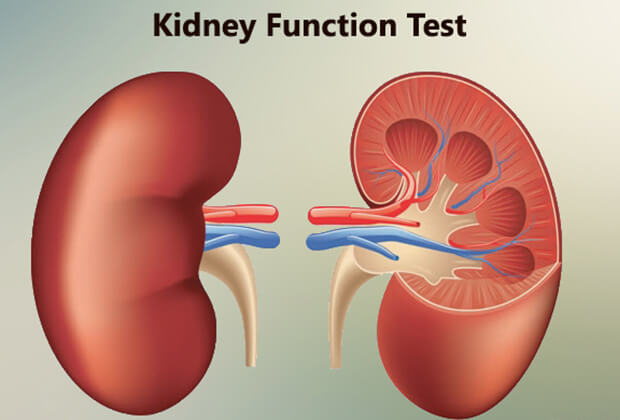


A Kidney Function Test checks how well your kidneys work, detects issues early, and supports overall health. It is vital for preventing serious problems.
In our hectic and stressful lives, we often don’t realise how our lifestyle impacts our health. Poor hydration, long hours at a desk, high salt intake, and stress silently burden our kidneys. These bean-shaped organs are vital for filtering waste and maintaining fluid balance in the body. Kidney problems usually start without warning signs, which makes regular health screenings, like a Kidney Function Test (KFT), essential. A simple KFT can detect issues early and help prevent serious damage. It gives you a detailed report on how well your kidneys are functioning.
KFT is typically done using a blood sample, a 24-hour urine sample, or sometimes both. In today’s fast-paced world, kidney-related problems are becoming more common, and taking care of your kidney health is no longer optional.
Kidneys play a key role in your overall health. Each kidney filters about 50 gallons of blood daily, removing toxins, extra salt, and waste through urine. They help control blood pressure and maintain a healthy balance of water and minerals. They also support bone health and assist in red blood cell production. If kidneys stop working properly, waste builds up in the body, leading to swelling, fatigue, high blood pressure, and even kidney failure.
A Kidney Function Test (KFT) is a set of blood and urine tests used to check how well your kidneys are working. These tests measure waste levels like creatinine and urea in the blood, along with electrolyte levels such as sodium, potassium, and chloride. A key result in this test is eGFR, which shows how well your kidneys filter waste from the blood.
KFT is especially important for people with high blood pressure, diabetes, or a family history of kidney disease. It can reveal whether your kidneys are under stress and in need of medical attention. The test is simple, quick, and gives crucial insight into your kidney health.
Your doctor may recommend a KFT if you show any of these symptoms:
Blood in urine
Pain while urinating
Swollen feet or ankles
Frequent urination
Trouble sleeping
Nausea, vomiting, or loss of appetite
Cramps or fatigue
It’s also advised for people born with low birth weight or those above 60 years of age. People with diabetes or high blood pressure should take this test regularly, as both conditions can affect kidney function over time.
Early Detection:
Kidney disease often begins without symptoms. Regular testing can identify problems early and make treatment more effective.
Better Management:
If you have chronic conditions like diabetes or high blood pressure, KFT helps in monitoring kidney health and adjusting treatment plans as needed.
Avoid Complications:
Sometimes internal issues go unnoticed. KFT helps detect silent infections or inflammations before they become serious.
Track Progress:
For those already diagnosed with kidney disease, the test helps track health and allows doctors to personalise treatment.
Support Lifestyle Changes:
Frequent testing gives a clear picture of your health and encourages better habits such as healthy eating, exercising, and reducing salt intake.
Keeping your kidneys healthy doesn’t always need medicine. Simple changes in your lifestyle and diet can have a big impact:
Balanced Diet:
Eat more fruits, green vegetables, and whole grains. Avoid processed and fried foods. High sodium intake may increase protein in the urine, which can harm your kidneys, especially if you already have kidney disease.
Stay Hydrated:
Drink 7–8 glasses of water daily. It helps your kidneys flush out waste efficiently through urine.
Stay Active:
Daily physical activity maintains a healthy weight and reduces the risk of chronic kidney disease. Exercise also lowers blood pressure, protecting kidney health. You don’t need a gym—walking, jogging, or yoga for 30 minutes a day helps.
Maintain Blood Pressure:
Consistently high blood pressure (over 140/90) can damage your kidneys. Monitor your BP regularly and consult a doctor if it’s often high.
Quit Smoking and Limit Alcohol:
Smoking narrows blood vessels, reducing blood flow to your kidneys. Excessive alcohol use adds strain to your kidneys.
Avoid Overuse of Painkillers:
Long-term use of painkillers can damage kidney tissues. Always consult your doctor before taking any medicine for an extended period.
Think of KFT as an investment in your well-being. Don’t wait for symptoms to show—book your Kidney Function Test today. Prevention is always better and more affordable than cure.
